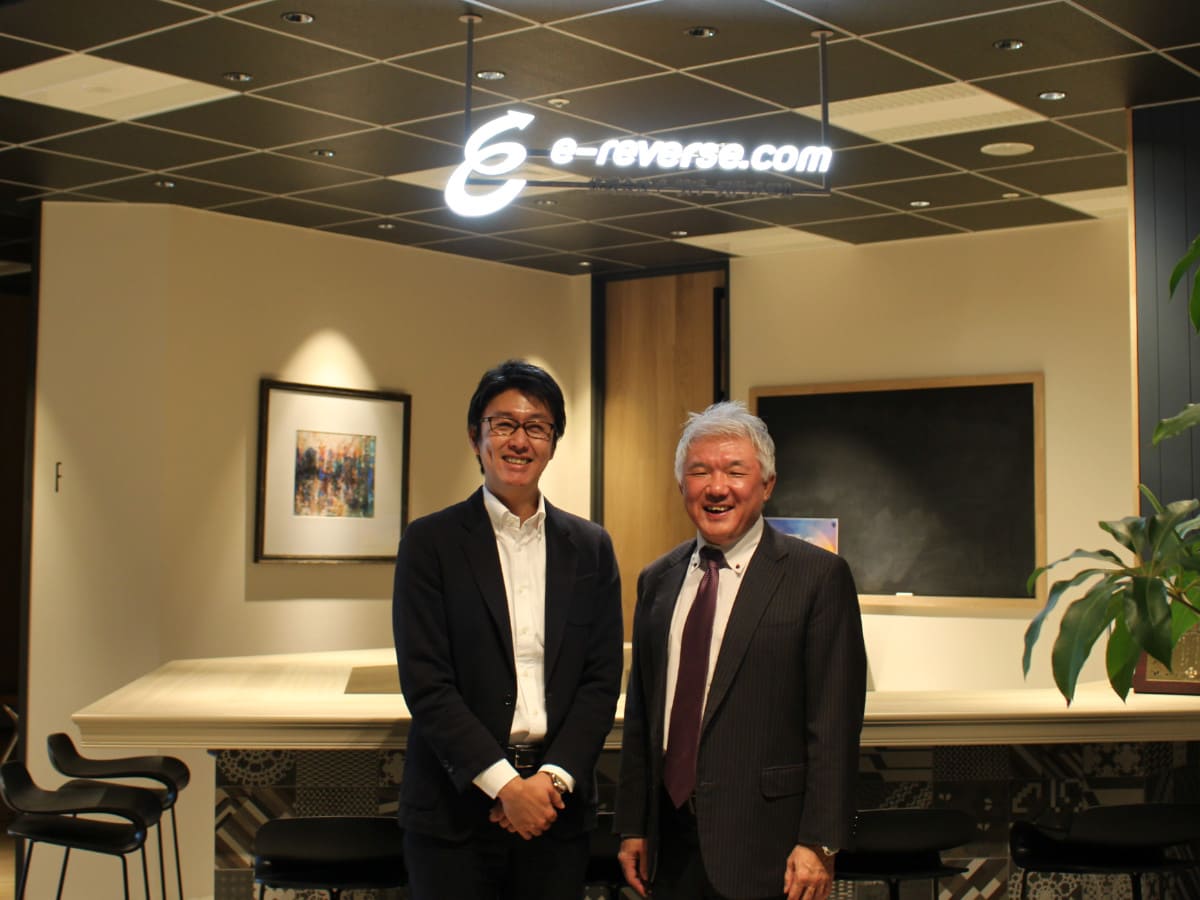
E-reverse.com Co., Ltd.
President & CEO Mr.Takumi Takahashi
Head of the president office Mr.Nobukazu Uchiki
The company was established in 2007 and developed an electronic receipt service management for the industrial waste industry. Currently, it has over 6,000 companies registered as users, consisting of industrial waste disposal companies, collection and transportation companies, and treatment companies. In 2017, a service supporting the task optimization for construction companies was started as the third pillar of the company.
Takahashi: Our company has three main businesses. The first one offers traceability management of industrial waste business, where we provide a web service for filling in the electronic receipt, which is important in the disposal of industrial waste.
The second is providing an electronic service for the contract details regarding the transportation and treatment of industrial wastes from businesses. The third one, which was started in 2017, is involved in the business of construction where we provide a support service for the communication between the main contractor and the subcontractor, enabling efficiency on the construction site.
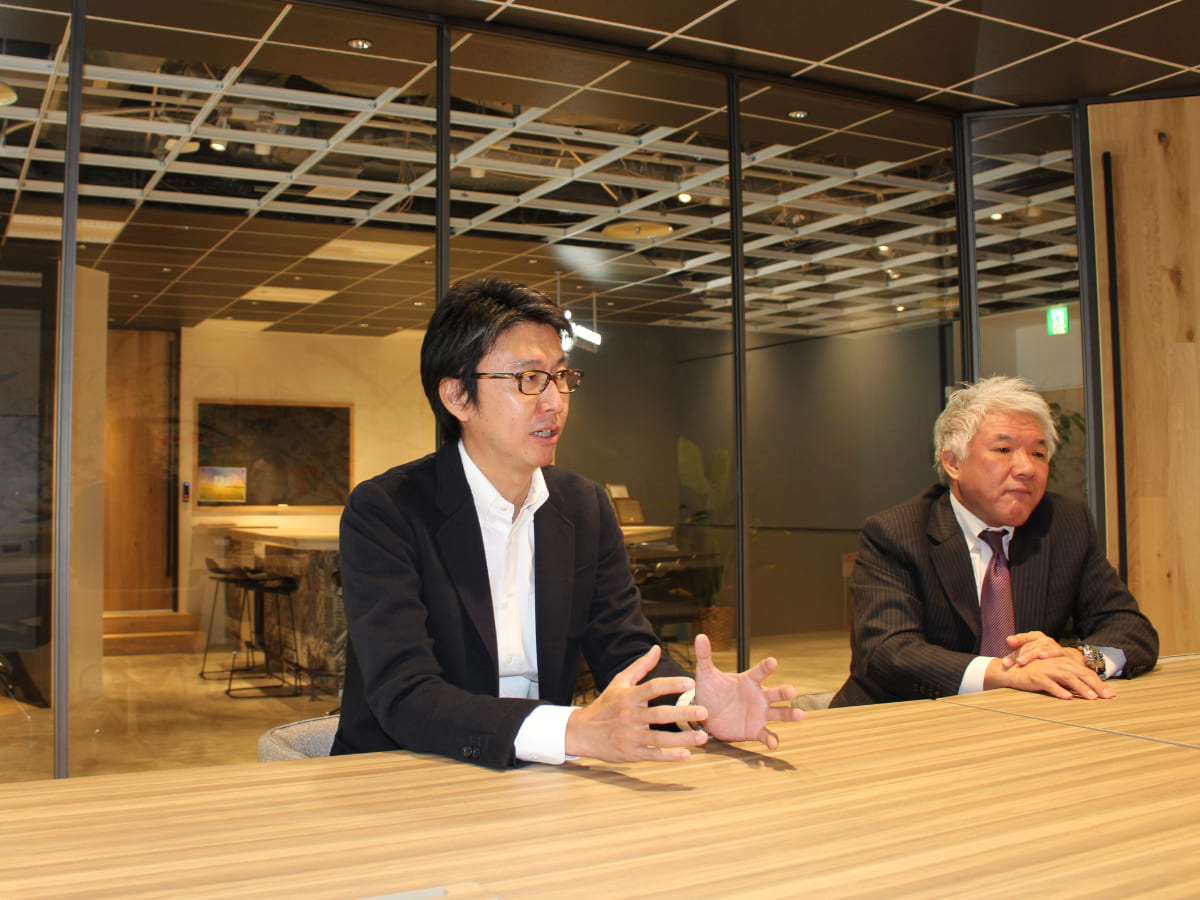
Takahashi: Within the 10 years after the company’s establishment, we have been focusing on providing industry-related services, and we considered investing the management resources there.
On the other hand, as the business was expanding, a problem became evident: A service that changes paper receipt into an electronic one has a limited market size.
In terms of growth steps, I felt that our company came to a challenging period with the creation of a new business. In order to do so, it was necessary to design a middle-term growth strategy; however, there was a limit on the capability of in-company resources.
Therefore, we decided to ask for assistance from an external consulting firm in designing the strategy.
Uchiki: The middle-term management plan controls the company’s future. Since the creation of an important strategy for the company will be complemented with an external partner, we placed importance on whether we could function as a good team—specifically, if whether the consultant is capable of communicating smoothly with our company’s management team or project leaders. In that sense, I felt that LiB Consulting’s consultants were the best fit for us.
Another important thing was the extent to which the consultant understood the growth strategy vision our company is thinking of. Our president has high expectations for the company’s business activity in the next three or five years and expects a plan that breaks the company out of its shell. A middle-term management plan should be a policy that explains this journey from the beginning until its realization in detail.
There were many companies that participated in the competition; however, the company that truly understood our company’s way of thinking and formed a suitable team for us was LiB Consulting.
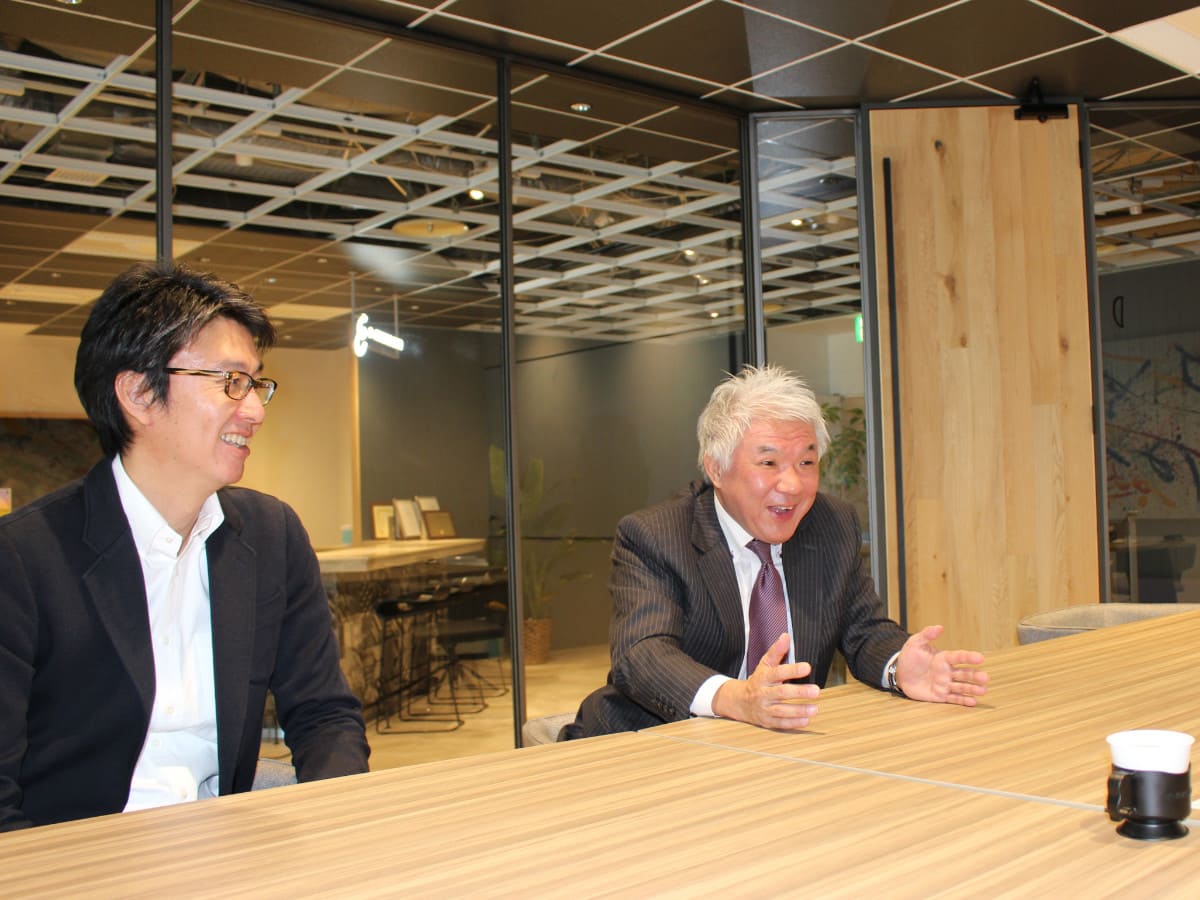
Takahashi: To tell you the truth, I thought I would select other companies because the proposal we received from LiB Consulting during the competition felt quite unfeasible.
On the other hand, LiB Consulting’s proposal demonstrated deep understanding about our company’s business and industry, and the enthusiasm of working with our company as a team in planning was conveyed. For me, this is a first among the consulting firms we have conferred, and initially, I thought, “There should not be much difference among the companies. We only want them to give us an advice according to the theory.” However, I felt that LiB Consulting could be different, and therefore, as the final candidate, I requested one more presentation after expressing my intention of “breaking out of the shell” and “increasing the pace of growth”.
And it is there that the difference of LiB Consulting from the other companies became evident. It became apparent that the firm does not only go by the book but also considers our company’s circumstances in their talks, which consisted of the exact same problems that I am thinking of time and again.
Moreover, I am just plainly overwhelmed by their enthusiasm. Having felt such distinction, I realized that LiB Consulting is not just an advisor but moreso a true companion of our company who would create an order-made plan for us. I think it was a wonderful presentation that clearly showed off their excellence. When the competition was over, I immediately decided to choose LiB Consulting.
Takahashi: The first thing I felt positive with was the two-day, one-night camp held right after the project kicked off. While consultants and the company’s management team gathered together and discussed about the future of the company, we came to understand the consultants as individuals, and thoughts were conveyed.
I felt that a momentum for everyone to work together as one in the creation and implementation of the growth strategy was also created.
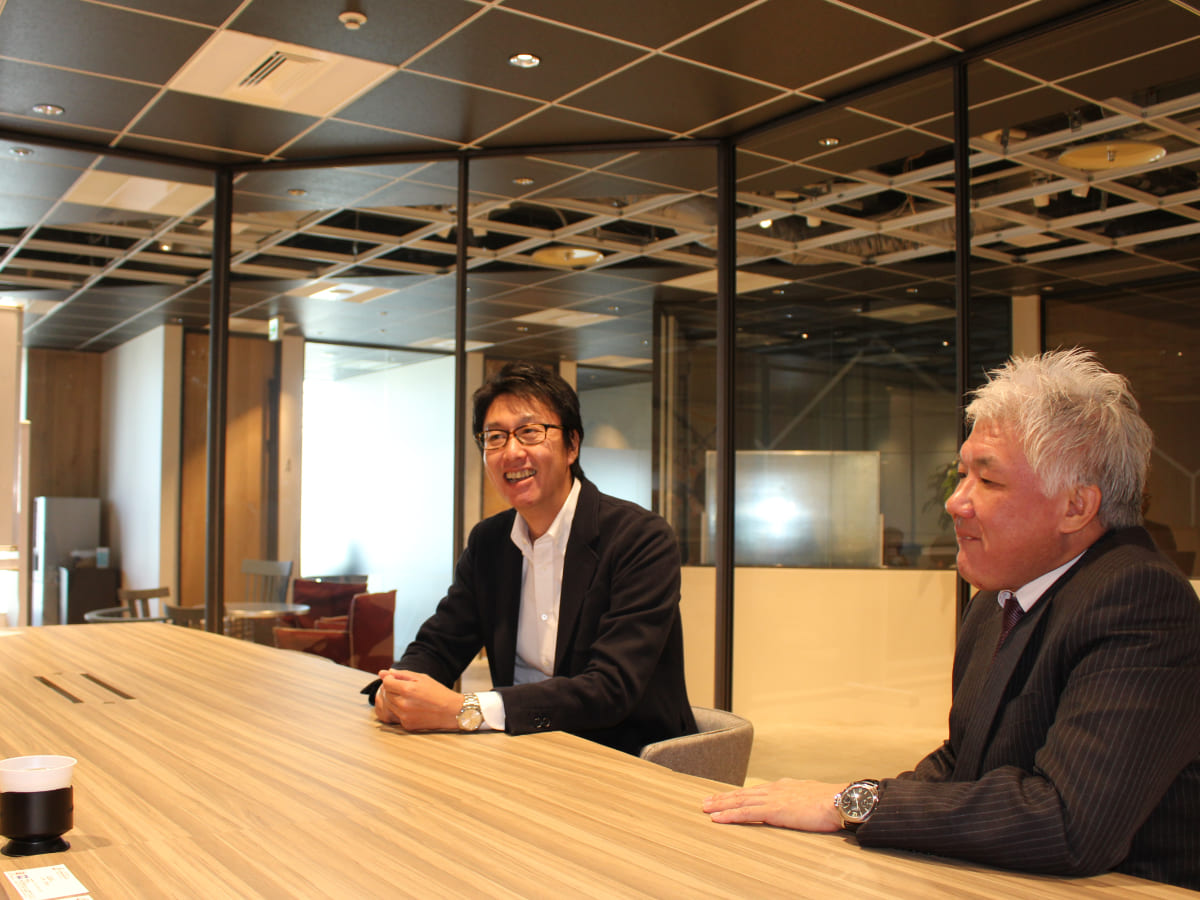
Uchiki: They were also very helpful from the perspective of carrying out the project. For example, during breakout sessions where discussions on different topics were conducted, consultants participated in each session and managed the progress according to the proceedings and the overall state of the progress for us.
They could have only shown us the method, but instead, they fully participated as one of our companions. While taking the role of a player, standing and participating from the same standpoint in some activities, they also took the role of a coach, allowing members to make important decisions in order to improve their awareness and ability.
The consulting firm’s desire to create the best plan could also be felt at all times; when we see that attitude, we also gain an awareness to carry on improving for the completion of the plan.
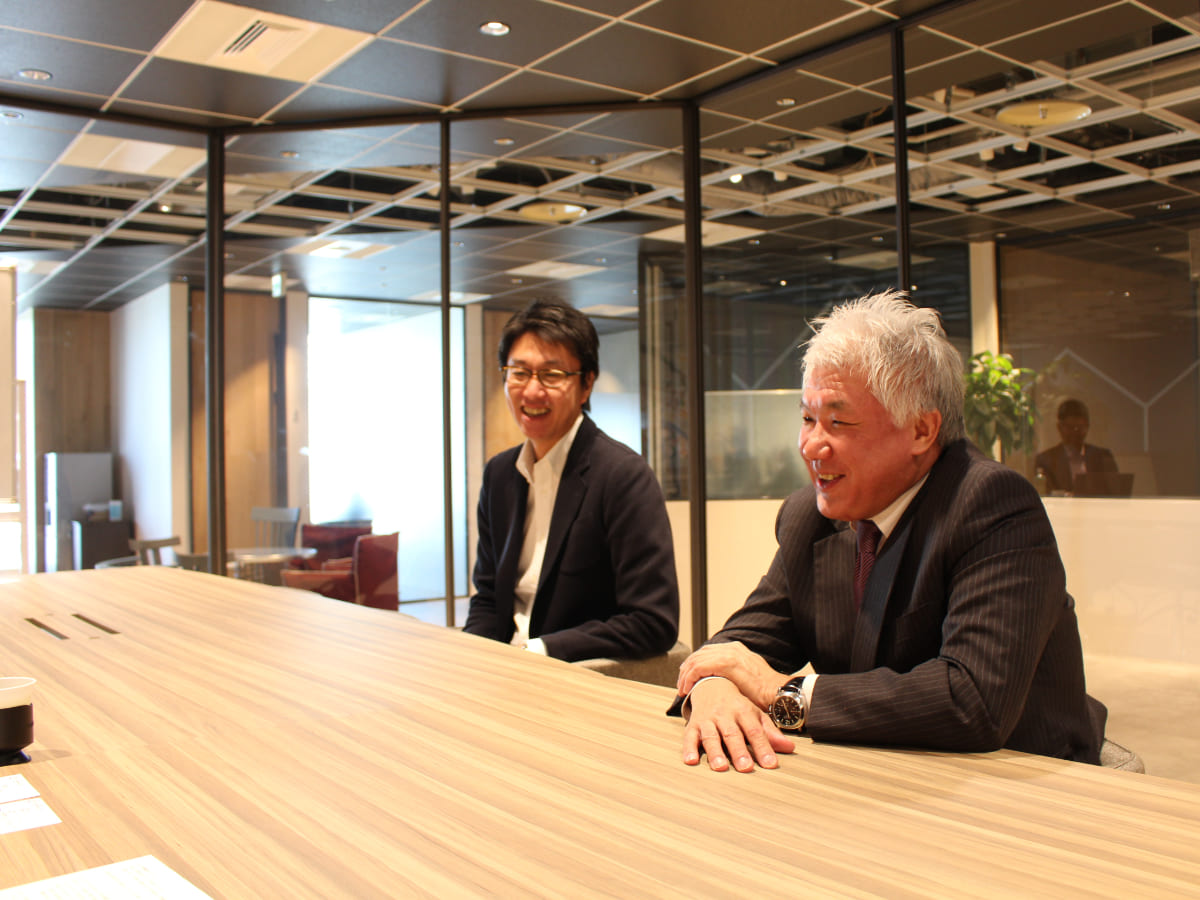
Takahashi: Concerning the middle-term management plan, it is not the formulation but the implementation that is important. The growth strategy should not only be drafted, but it also has to be achieved.
Therefore, I hope that the plan formulated this time will also be specific enough to be put to use immediately after completion, and that it would steadily lead to success.
Moreover, through working with LiB Consulting up until now, I felt that a relationship of trust has been built between us, and for me, I believe that there are still many know-hows and techniques not only in the design of the growth strategy but also in its implementation.
From now on, I would continue to communicate the plan’s objective and details to all employees in the company and instill the team spirit of moving forward together and wish that LiB Consulting would continue to take on the role of complementing what our company lacks and our weaknesses.
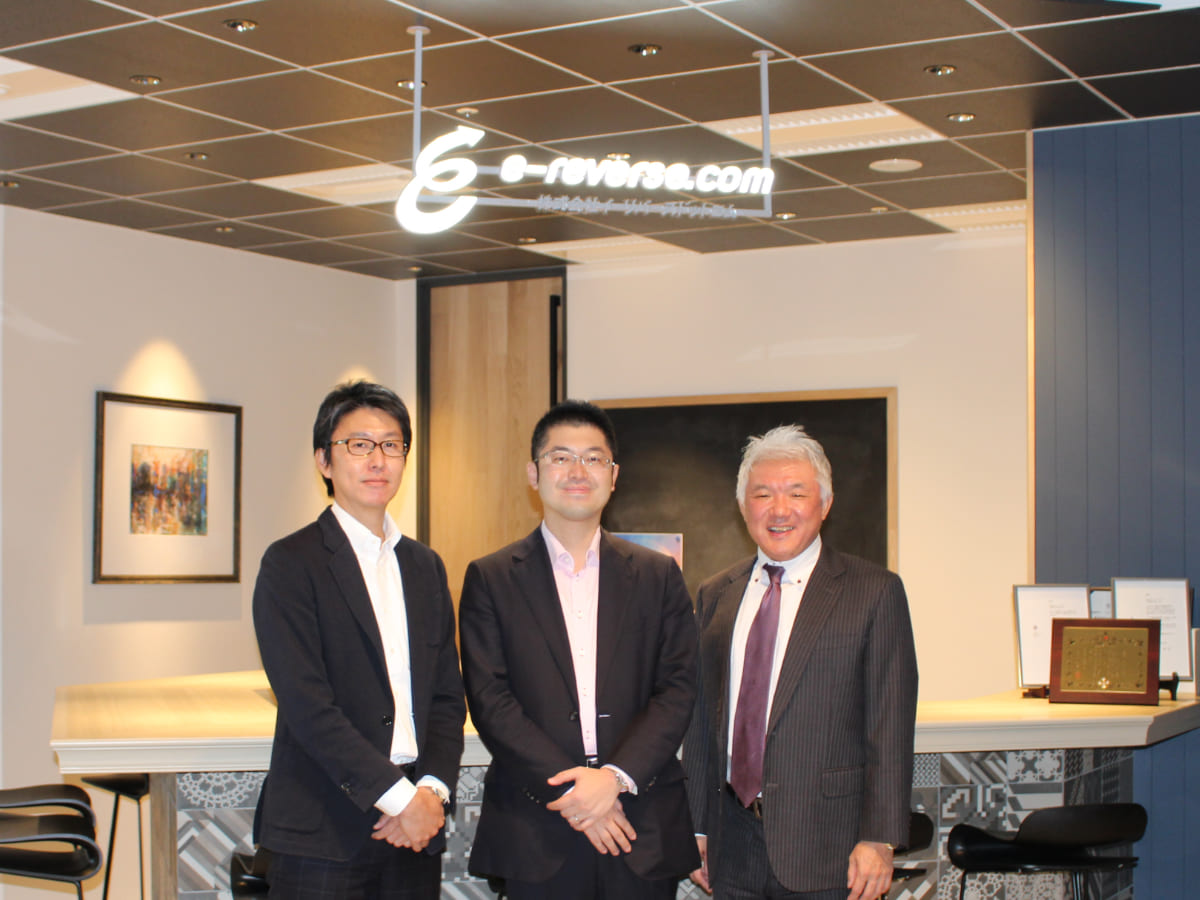
Left to right: Mr. Uchiki, our company’s consultant, and Mr. Takahashi.
Thank you for your interest.
Please fill in some important information and we will be in touch.